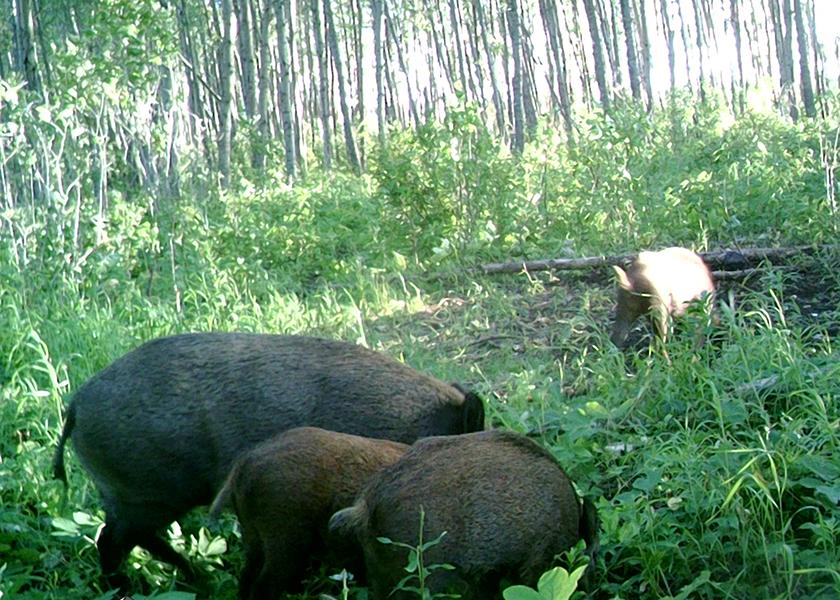Missouri’s Feral Hog Problem Turns a Corner

Traps. Drones. Sharpshooters. Missouri officials are doing everything they can to control its feral hog population.
Officials say these efforts are working.
A group of agencies, including the managers of the Mark Twain National Forest, has eliminated more than 6,000 feral hogs over the past two years in Missouri, and is optimistic that the nuisance animals are close to being under control, STL Public Radio reports.
Feral hogs in the Mark Twain National Forest occupy 50% less land than they did in 2016, from 12 million acres to 6 million.
More work needs to be done, Amy Salveter, incident commander of Feral Hog Interagency Elimination Efforts for Mark Twain National Forest, told STL Public Radio.
“The wild hog is very possibly the most dangerous animal in the wild. And he knows no enemies and he knows no fear,” Hank Berdine of the Mississippi Levee Board said in a video series, Feral Swine in America.
Why are they so dangerous? Not only do wild pigs lack natural predators in the U.S., but they also reproduce at alarmingly high rates. This has led to large-scale damage in farmland and conservation areas. They also are a threat to native plants and animals by destroying habitat.
“They destroy the environment and carry diseases that can spread to humans and domestic pig herds,” says John Tomecek, assistant professor and wildlife specialist with Texas A&M AgriLife Extension Service.
Salveter says that increased trapping and hunting efforts over the past two years have helped reduce the feral hog population.
In addition to receiving fewer complaints from landowners and seeing fewer signs of damage, large groups of wild hogs, known as sounders, are less prevalent.
They are also using drones with forward-looking infrared radar to find feral hogs, Salveter told STL Public Radio. Tools are improving, and the technology is better for detection and targeting of these wild pigs.
Unfortunately, due to Missouri’s location near states with high wild pig populations like Oklahoma, Texas and Arkansas, wildlife researchers do not expect feral hogs to completely go away in Missouri.
But Salveter believes the problem is getting more manageable and she told STL Public Radio she thinks they’ve turned a corner.
More from Farm Journal's PORK:
The Wild Hog Knows No Fear: True Stories of One of Ag’s Biggest Threats
Killing Hogzilla: Hunting A Monster Wild Pig
Monster-Sized Wild Pigs are on the Rise in Canada
Wild Pig Wars: Controversy Over Hunting, Trapping in Missouri
Texas Pork Producers Face Uphill Battle with Wild Pigs
Deadly Terrorist Threatens the Lone Star State’s Domestic Pig Herd







